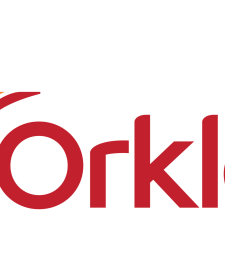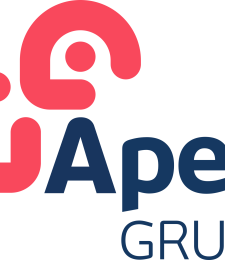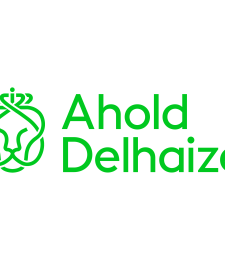Pledges
Orkla (2021)
Pledges

Publishing organisations:
Editorial team
Relevant countries:
Norway
Organisation types:
Company with 250 or more employees
Next progression check date:
Orkla ASA is a leading industrial investment company focused on brands and consumer-oriented businesses. With a portfolio of 10 companies, Orkla leverages its industry expertise, consumer insights, and experience in building leading brands to create long-term, sustainable value. The company employs approximately 20,000 people and operates across various sectors, including food, health, home and personal care, and sports nutrition.
Editorial team
Topics
Norway
Company with 250 or more employees
-
CoC aspirational objectives
-
-
1. Healthy, balanced and sustainable diets for all European consumers
-
2. Prevention and reduction of food loss and waste
-
3. A climate - neutral food chain in Europe by 2050
-
4. An optimised circular and resource-efficient food chain in Europe
-
5. Sustained, inclusive and sustainable economic growth, employment and decent work for all
-
6. Sustainable value creation in the European food supply chain through partnership
-
7. Sustainable sourcing in food supply chains
-
Share
As a manufacturer of food and other consumer goods, Orkla’s primary contribution to sustainable development is to offer sustainable products, and UN Sustainable Development Goal 12 – responsible consumption and production – forms the very core of the Group’s sustainability work. Our companies have worked for many years to achieve Orkla’s 2025 sustainability targets. In 2020, we launched a new internal sustainability aspiration up to 2030 which underscores the importance of sustainable products and of mobilizing the entire organization.
Commitments by aspirational objectives:
Aspirational objective 1: Healthy, balanced, and sustainable diets for all European consumers, thereby contributing to:
1) Reversing malnutrition and diet-related noncommunicable diseases (NCDs) in the EU;
2) Reducing the environmental footprint of food consumption by 2030.
With the following aspirational targets:
a) Improved food consumption patterns in the EU;
b) A food environment that makes it easier to choose healthy and sustainable diets.
Orkla commitments:
Grow the plant-based food brand portfolio from 1 to 3 billion NOK by 2025 (baseline 2020);
15% reduction in the contribution of salt and sugar to people’s diet from Orkla’s products by 2025 (baseline 2015).
Aspirational objective 2: Prevention and reduction of food loss and waste (at the consumer level, within internal operations, and across value chains)
With the following aspirational target:
A 50% reduction of per capita food waste at the retail and consumer level by 2030 and reduced food losses along the food production and supply chains in the EU.
Orkla commitments:
50% reduction in food waste by 2025 ( baseline 2014).
Aspirational objective 3: A climate-neutral food chain in Europe by 2050
With the following aspirational target:
Reducing net emissions from own operations, contributing to a 55% GHG emission reduction target in the EU food chain by 2030 (following a science-based approach).
Orkla commitments:
Climate-neutral by 2050, Science-based targets for climate gas reduction (base-line 2014):
63% reduction in scope 1 and 2 by 2025, 77% by 2040;
29% reduction in scope 3 by 2025, 75% by 2040.
Aspirational objective 4: An optimised circular and resource-efficient food chain in Europe
With the following aspirational targets:
a) Improved resource efficiency within own operations, contributing to sustainable, efficient use and management of energy and natural resources in operations by 2030;
b) Improved sustainability of food and drink packaging, striving for all packaging towards circularity by 2030.
Orkla commitments:
30% reduction in energy and water consumption in own operations by 2025 (baseline 2014);
100% recyclable packaging by 2025;
75% recycled and/or renewable packaging materials.
Aspirational objective 5: Sustained, inclusive, and sustainable economic growth, employment, and decent work for all
With the following aspirational targets:
a) Improved resilience and competitiveness of companies operating at any point along the food value chain by 2030;
b) Quality jobs, skilled workforce, and safe and inclusive workplaces for all.
Orkla commitments:
Human rights due diligence process implemented for own operations and supply chains by 2025.
Aspirational objective 6: Sustainable value creation in the European food supply chain through partnership
With the following aspirational targets:
a) Improved resilience and competitiveness of companies operating at any point along the food value chain by 2030;
b) Continued progress towards sustainable production, contributing to sustainable management and efficient use of natural resources by 2030 and improved animal welfare.
Orkla commitments:
Be a local champion for sustainability in all our key markets.
Aspirational objective 7: Sustainable sourcing in food supply chains
With the following aspirational targets:
a) Transformed commodity supply chains that do not contribute to deforestation, forest degradation, and destruction of natural habitat and which preserve and protect high-value ecosystems and biodiversity;
b) Improved social performance in (global) food supply chains.
Orkla commitments:
Verified and sustainable production of key raw materials by 2025.
Full detail of the pledge in the provided attachment.
Documents
Comments (0)
See also
-
7
Coca-Cola (2021)
Publishing organisations: Coca-Cola Europe
Relevant countries: EU-27
Organisation types: Company with 250 or more employees
Next progression check date:
- Categories
- 2. Prevention and reduction of food loss and waste 3. A climate - neutral food chain in Europe by 2050 4. An optimised circular and resource-efficient food chain in Europe +3 more
-
5
Grupo Apex (2021)
Publishing organisations: Grupo Apex
Relevant countries: Spain
Organisation types: Company with 250 or more employees
Next progression check date:
- Categories
- 2. Prevention and reduction of food loss and waste 3. A climate - neutral food chain in Europe by 2050 4. An optimised circular and resource-efficient food chain in Europe +3 more
-
6
Ahold Delhaize pledge (2023)
Publishing organisations: Ahold Delhaize
Relevant countries: Netherlands
Organisation types: Company with 250 or more employees
Next progression check date:
- Categories
- 2. Prevention and reduction of food loss and waste 3. A climate - neutral food chain in Europe by 2050 4. An optimised circular and resource-efficient food chain in Europe +3 more




